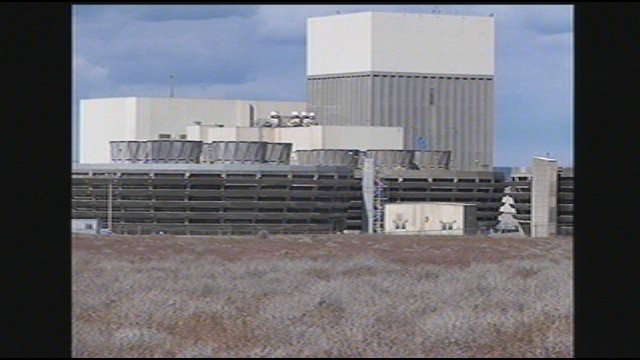forum
library
tutorial
contact

New Safety Standards
Post Fukushima Could Cost $30M
by Annette Cary
The News Tribune, January 26, 2012
|
the film forum library tutorial contact |

|
New Safety Standards
by Annette Cary
|
 Energy Northwest may need to spend $30 million to $50 million to fulfill new safety requirements for multiple or extreme emergencies at its nuclear power plant near Richland, according to preliminary estimates.
Energy Northwest may need to spend $30 million to $50 million to fulfill new safety requirements for multiple or extreme emergencies at its nuclear power plant near Richland, according to preliminary estimates.
Mark Reddemann, chief executive of Energy Northwest, discussed plans related to regulatory changes expected in light of the Fukushima, Japan, nuclear disaster at a Wednesday meeting of the Energy Northwest Board in Pasco.
In October, the Nuclear Regulatory Commission told its staff to begin implementing seven recommendations made by its Japan Near-Term Task Force. The actions based on the recommendations are expected to be completed at plants such as the Columbia Generating Station near Richland in the next four to five years.
They cover issues including the loss of all electrical power at a reactor, reviews of earthquake and flooding hazards, emergency equipment and plant staff training. However, Energy Northwest will not receive its NRC orders until early March and will know more about specific requirements and costs then.
The most costly order for Energy Northwest might be installing vent ducting to the Columbia Generating Station's containment structure. The Columbia Generating Station is a General Electric boiling water reactor similar to those at that Fukushima plant, but is newer and with a design that has an improved and stronger containment structure than most of the Fukushima reactors.
During a severe accident, containment pressure must be controlled to prevent damage to the containment structure and must be low enough to allow water to be added to the reactor.
Specific changes have not been spelled out by the NRC, but the Columbia Generating Station might need to add capabilities for automatic operation of containment venting plus a remotely operated manual system.
"This is not an easy endeavor," Reddemann said.
But some of the proposed changes to prepare for extreme emergencies are actions Energy Northwest already has taken.
Officials walked the entire plant to identify any vulnerabilities after the Fukushima disaster, which is one of the recommendations the NRC approved.
Energy Northwest also has worked on identifying seismic and flooding hazards. The NRC orders are expected to require Energy Northwest to look at whether new flooding or earthquake information is available that would indicate the risk is greater than when its plant was licensed, and then modify the plant for those risks.
Energy Northwest doesn't expect any change to flooding information, and although the seismic analysis cannot be completed without more information from the NRC, there are no indications now that any changes will be needed, said Greg Cullen, assistant chief nuclear officer at the Columbia Generating Station, after the board meeting.
The NRC also is expected to require that nuclear plants extend the length of time they can cope on battery power to a minimum of eight hours in the event of a blackout of supplied electricity. Now, the required time is four to eight hours.
Plants also must add equipment to extend the time they can provide cooling of the reactor core and spent fuel without supplied power up to 72 hours.
After the Sept. 11 attacks, Energy Northwest made improvements to have equipment in place to enhance safety in response to a terrorist attack and will build on that with the expected new orders. That has included relocating emergency equipment to make sure it will not be out of commission because of the emergency.
Other requirements likely will include more training for extreme emergencies and making sure the Columbia Generating Station has the ability to communicate onsite and offsite in the event of a total loss of power in the region. Energy Northwest is working on options such as supplementing its communication equipment with hand-held radios and satellite telephones.
The new requirements will be in addition to current U.S. regulations for nuclear power plants, which already are the most stringent in the world, said Energy Northwest spokesman Michael Paoli.
learn more on topics covered in the film
see the video
read the script
learn the songs
discussion forum
